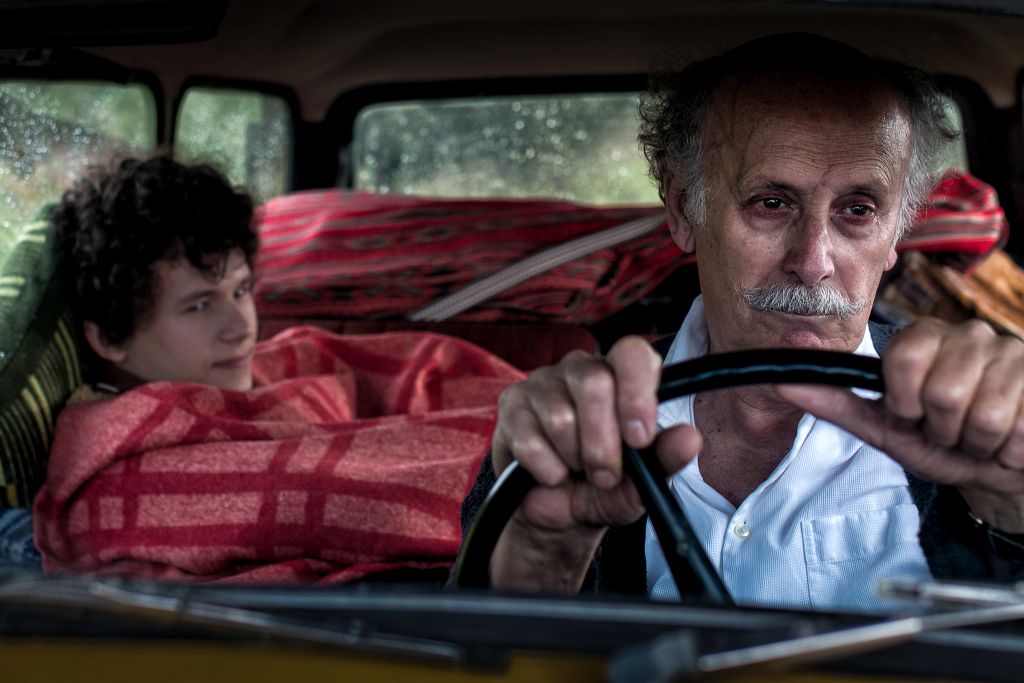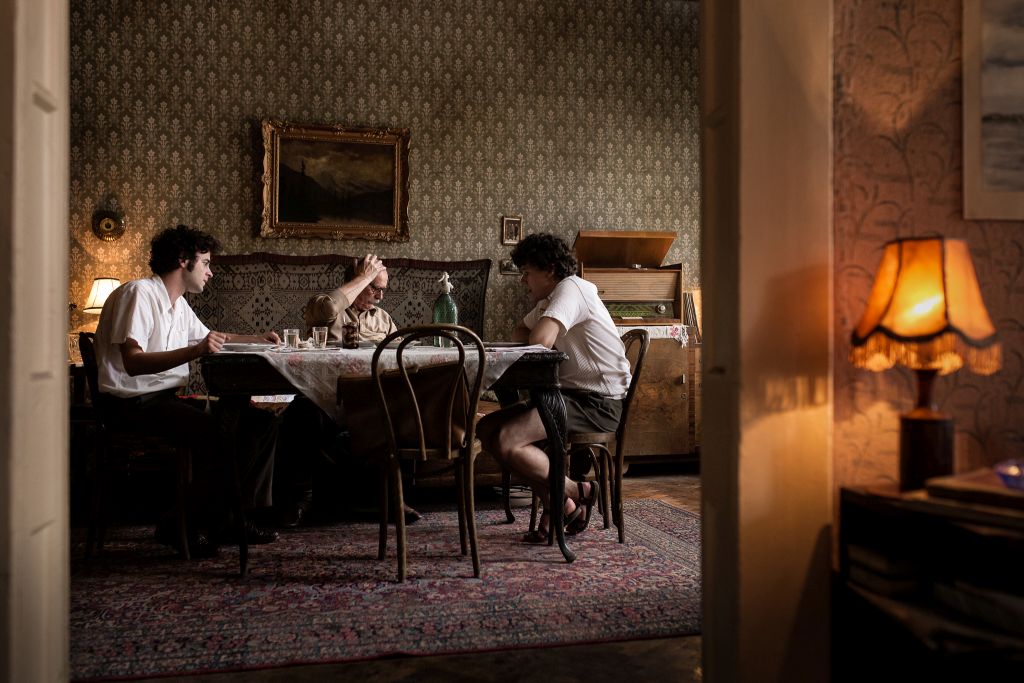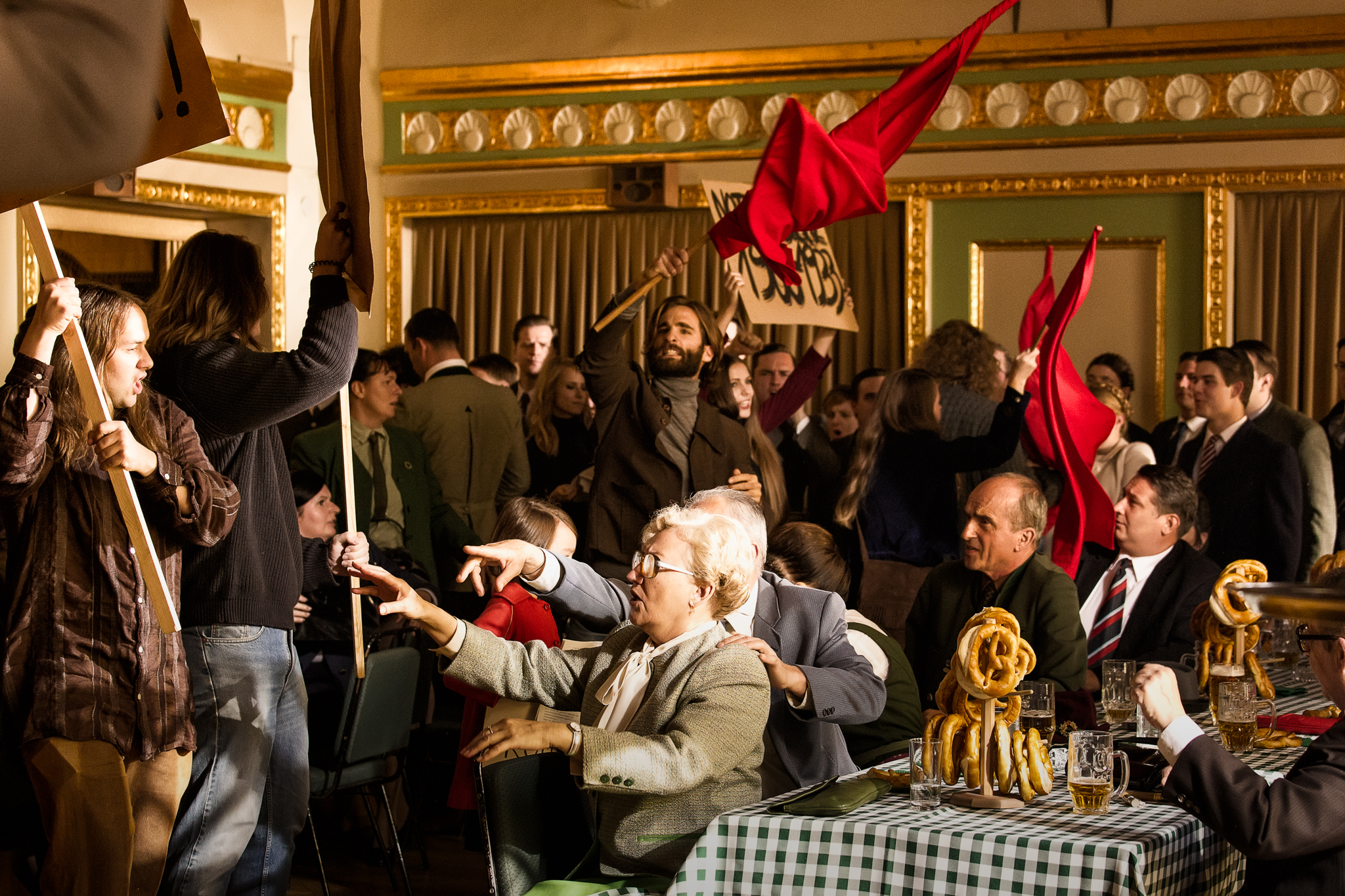officer and left two little boys behind; the eldest son, the doctor Mihai Reinholtz is a collaborator of the Security which, in turn, absolved him of the three years stage in the countryside, “as the Party requires”; the younger son, Emil Reinholtz, who is still in high school, on the verge of his graduation exams, has revolutionary impulses and writes anti-system slogans (“The Stalin supporters should retire/ Dubcek, come and free us!”), risking of being arrested. The context is political as well: we are in the month of August 1986, in full Prague Spring.
Their journey by car from Arad to Munchen dramaturgically functions by means of a few landmarks, which are political as well: short discussions between the three heroes about collaborationism (both the father and the younger brother knew about Mihai`s status and they break out only now) and disappointment (the sick father refuses to make the operation because he is tired of life…he even tried to commit suicide on Christmas, in the house attic); their meeting the Soviet tanks which were heading to Czechoslovakia; the retention

of the tourists of different nationalities in the small camp improvised in German Democratic Republic; the terminus point of their journey in the home of the young Federal German Republic revolutionaries, some rich kids excited by Marxism. Besides all that, the journe
y presents itself on the screen by long (and a little boring) following shots of the car riding along the scenery and by edits of black and white photographs. The political vein is backed up with the help of some document footages with Dubcek and Ceaușescu, the first one on TV and the second one in the balcony of the Central Committee, having his famous speech that many people applauded as a proof of his “dissident” position.
The authenticity of the facts that the fiction was based upon is confirmed by the final insert which says that the film is dedicated to the director`s father. Out of his experience and probably out her experience of living abroad, That Trip We Took with Dad offers some conclusions: the omnipresence of delation: in Romania, GDR, FGR, the invitation to become an informer made by the authorities and paid in one way or another are comparable (and Mihai is their perfect victim, as if being an informer has been predestined to him and written on his face. Or the funny utopia of the socialist enthusiasm asserted in the games of the Arad kids, or in the actions of the west-German young people from the high society.
Anca Miruna Lăzărescu didn`t do as well as I expected in managing this knot of film genres. The clumsiness of placing potentially dramatic stories, the ridicule of some supposed tense situations (see the father`s anger against the Soviet tanks), the banality of some details meant to be some symbols (from the poster with Ceaușescu that falls as a guillotine over Mihai`s head, up to Lenin`s bust hanging at the toilet chain), the predictability of the apogee (the collapse of the father after being euphoric when dancing Kalinka), the unhappy inspiration of resorting to solutions that are not congruent to the rest of the film (like the scene with the dead mother appearing to get the dying father); then there are the modest performances of the actors. All these are the weak points of a film with promising premises. Having said that, let me finish with some paraphrase of a fashionable, but kind of imbecile assertion: “the winter`s not like summer”, or “the night is not like day” – the feature film is not like the short film.
 the young screenwriter and director. And it happened with the film That Trip We Took with Dad / La drum cu tata. The connection between the two of them is the theme: they are both about Romanian fleeing the country during the Ceaușescu years in order to settle in the west. Her being interested in this topic roots back to the filmmaker`s biography – her father had gone through such an experience. She lives in Germany where family moved right after 1989, when she was 11 years old.
the young screenwriter and director. And it happened with the film That Trip We Took with Dad / La drum cu tata. The connection between the two of them is the theme: they are both about Romanian fleeing the country during the Ceaușescu years in order to settle in the west. Her being interested in this topic roots back to the filmmaker`s biography – her father had gone through such an experience. She lives in Germany where family moved right after 1989, when she was 11 years old.

